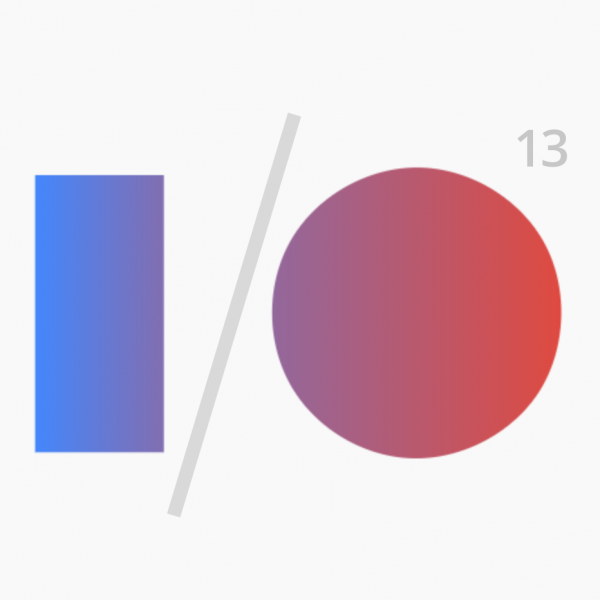
Google I/O sells out
Blink and you missed it. Registration for Google's developer conference opened at 10 a.m. EDT this morning and sold out fast. With so much candy to offer -- Android Key Lime Pie, Chromebook Pixel, Glass and Google Now -- I'm not exactly surprised. Google I/O 2012 was big, and this year's event promises to be even bigger. I got the "Google I/O is sold out" on the registration page around 10:48 a.m.
Google charges $900 for general developer admission and $300 for students or school faculty. The event takes place in San Francisco from May 15-17. Considering the goodies Google gives attendees, some people might sign up just for the hope of free Glass or Pixel (don't hold your breath). Last year, attendees got Galaxy Nexus, Nexus Q and Nexus 7. Oh yeah, Train performed live.

It's a gargantuan war among industry titans and the winners will control everything for years to come
Damn, what an extraordinary month.
Let’s recap. First, we saw a spate of exciting new Ultrabook announcements, along with some x86- and ARM-based Windows 8 tablets at Computex. Then Apple introduced new spins of iOS and OS X for tablets and PCs, respectively, at its developer gathering. Microsoft unveiled Windows Phone 8 at the Windows Phone Summit -- and let's not forget the Surface tablet. And this week, Google rolled out new products and concepts buckshot-style at Google I/O, showcasing its first branded tablet, the Nexus 7, and Android 4.1, just to name a few.

ADOBE FLASH IS DEAD -- on mobile!
From the halls of Adobe come the bells of impending death tolls. The master slayed its dragon. Flash is dead. The words from Adobe today in a public blog post mark another major blow to Flash, at least in the mobile form. The company announced that it will no longer develop Flash for Android after Android 4.0. There will be no certified implementations for Android 4.1.
Earlier this week, during its developer conference, Google officially unveiled the newest Android version -- Jellybean -- which replaces the stock browser with Chrome, for which Flash already isn't available. Google released Chrome for Android beta, supporting on v4 Ice Cream Sandwich, in February. From that perspective, the announcement, and timing, isn't super surprising.
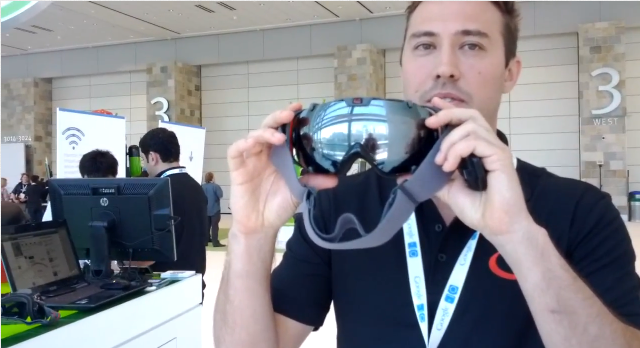
What Recon Instruments' HUD SDK means to you
Yesterday at Google I/O, Recon Instruments announced the HUD SDK. I couldn't get time at the booth until today, they were so busy. Recon is best known for its goggle mods, which put an Android computer inside a heads up display that provides alpine skiers and snowboarder with all kinds of useful information such as speed, navigation and location, among others. Oh, yeah, music, too.
The development kit turns the device into a platform. Now third parties can write their own apps -- it's no longer a Recon affair. Tyson Miller explains what the SDK means for the company, its customers, developers and future products.
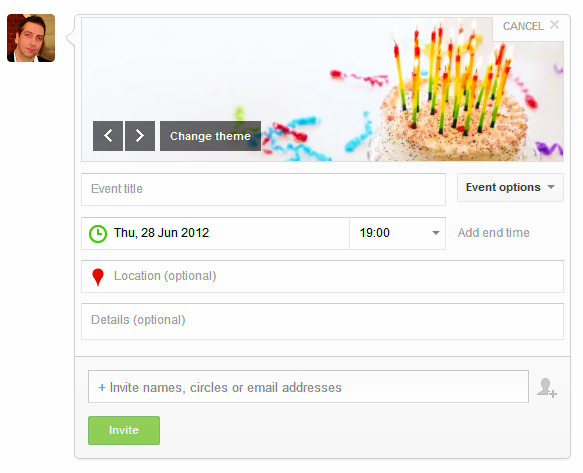
Google+ celebrates 1st birthday with Events and History
[portfolio_slideshow id=82031]
One year ago today, Google moved onto Facebook's turf and stunned techdom in the process. How much has changed? Google+ now has a total of 250 million users. Of that figure, Google says 150 million people use the service at least monthly, and 50 percent of those active users do so daily. That doesn’t actually mean 75 million people go to Google+ every day though -- it just means that they have some sort of interaction with Google’s social features, or more likely, click +1 buttons.

Google takes on Amazon with Compute Engine cloud service
Google has Amazon in its sights. The Mountain View, California company has announced Google Compute Engine, its answer to Amazon's Elastic Compute (EC2) service. While the company currently only offers its cloud platform in limited preview, it is likely wider availability will come in short order, likely later this year.
Google will provide customers with virtual machines in 1,2,4, and 8 core-configurations running Linux. Each virtual machine will come with 3.75GB of RAM per virtual core, and storage is provided through Google's new persistent block device, or its newly announced Google Cloud Storage product.
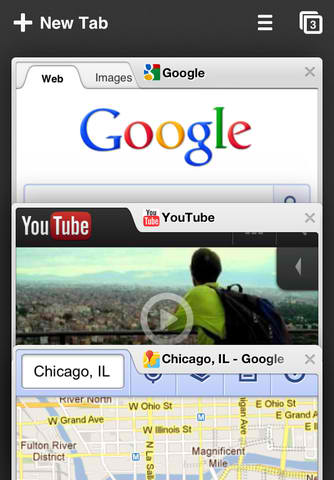
Google polishes iOS, adds Chrome trim
In its second day keynote at the I/O 2012 developer confab, Google announced it has brought the Chrome browser to Apple's iOS.
Macquarie analyst Ben Schacter recently released a report that stated that Apple may already be reviewing the app, estimating that it should be released second quarter of this year. However, due to the restrictions in Apple's developer terms of service, it's not going to be the full Chrome experience.
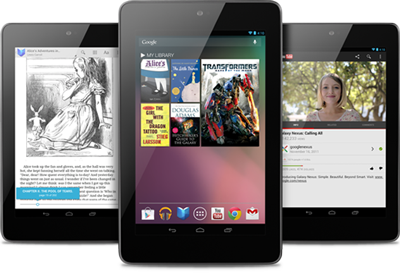
Would you sell your iPad and buy Google Nexus 7?
I ask because this morning I got email from a reader who is doing just that. "I ordered my Nexus 7 yesterday for $249, and I am selling my iPad gen 1 for $200", Brian Fagioli writes. It's not a bad trade-off. The original iPad is obsolete when iOS 6 ships, while Nexus 7 packs the newest Android version, Jelly Bean. But would you, and even for a newer iPad?
Google announced the tablet yesterday at Google I/O. Two models are available for preorder -- 8GB ($199) and 16GB ($249) -- and ship in mid-July. I wouldn't call Nexus 7 an iPad-killer, since it's a product with different ambitions: Reclaiming the Android tablet ecosystem from Kindle Fire. But the lower price and smaller size, and Android 4.1, do appeal. The question is to whom.

Google I/O Liveblog Day 2 -- how could it possibly be better than this?
I've covered lots of events over the years, but few as exciting as Google I/O 2012. Seriously, the cloud computing giant innovates in ways that, well, people attribute to Apple. There's a very aspirational quality about presentations so far, right down to the hard-knuckle coding sessions. You can feel a real sense of empowerment in the air -- that somehow these developers, and the customers they create products for, will have better lives for participating in this ecosystem.
Like yesterday, I will liveblog the keynote, which begins at 10 am PDT (1 pm Eastern Time) and post in reverse chronological order, meaning the newest stuff will be one top. But it's hard to imagine how Google could out-do yesterday's stunning presentation. Still, there is much ground to cover -- Chrome, Chrome OS, Google TV and the rumored Amazon Web Services-like platform, to name a few. There are still two days of sessions yet. Check back and refesh often.
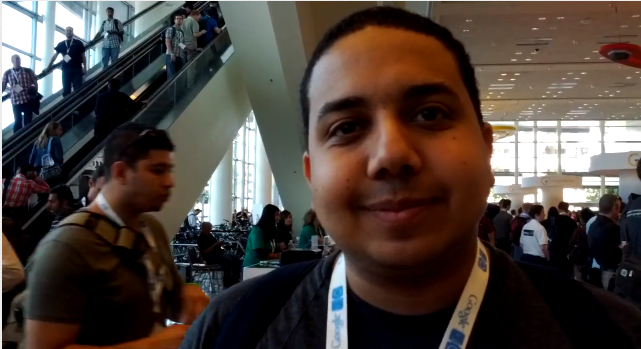
Android 4.1 extends language support, and this developer loves it
Yesterday, at Google I/O, I spoke with one developer waiting to get his big goody bag -- Galaxy Nexus, Nexus 7 and Nexus Q -- about his reaction to the first day's keynote. Like many other developers here, to my surprise, he develops for Android before iOS.
Among Jellybean's new features: Broader support for languages, including Arabic, and that makes this Google I/O attendee smile.
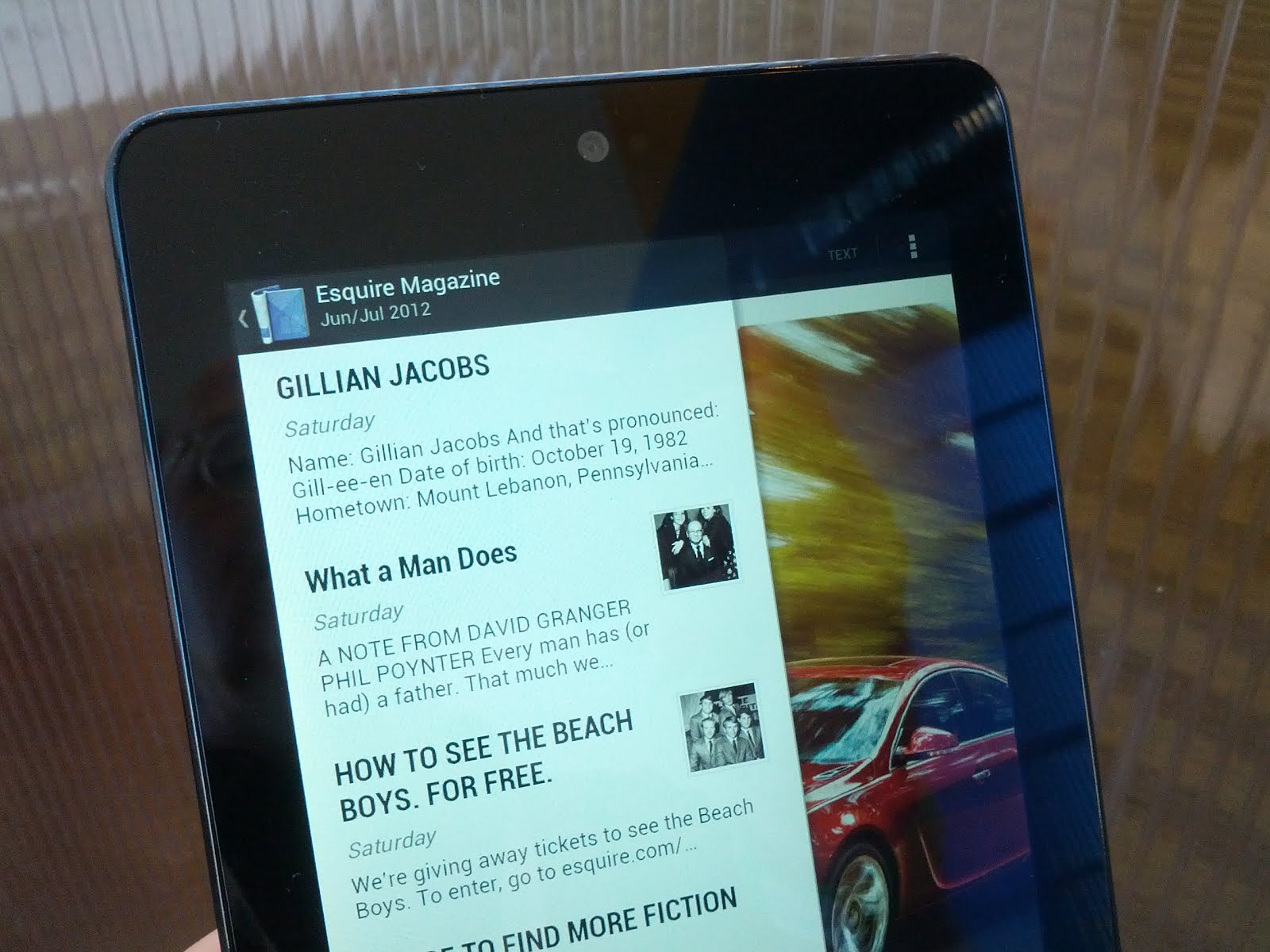
Meet Google Nexus 7, Kindle Killer
I told you so, in April. Contrary to pundits at the time viewing Google's tablet as an iPad competitor, I saw something else: Google isn't gunning for Apple but Amazon. After getting my hands on the tablet this evening, and comparing the experience using my wife's Kindle Fire, there is no doubt. Google will probably save Android from Amazon, but the end cost may be greater gains for iPad.
By just about every measure -- the exception being buying tens of thousands of retail goods -- using Nexus 7 feels like Kindle Fire, only better in every way. Significantly, the experience is different from using Google Nexus smartphones or other Android tablets. That's because Google Play is so visible. I can't say if that's a function of Android 4.1 Jellybean or how Google has set up the tablet. But content pushes to the forefront, like Kindle Fire, and much of it is similar.
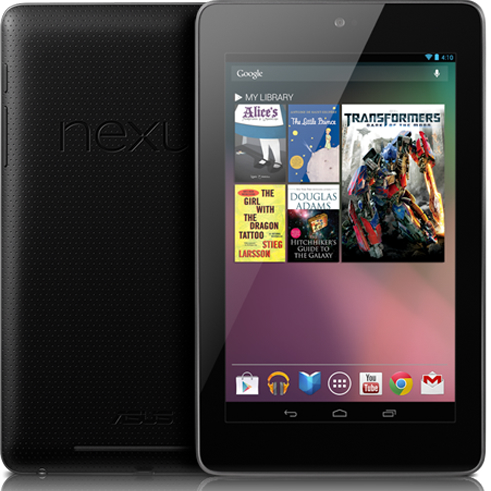
Google Nexus 7: yet another cheap Android tablet (YACAT)
The cat is finally out of the bag. After weeks of speculation surrounding Google’s vaporous "7-inch Kindle killer", the Nexus 7 is now real. And as I suspected, the search giant’s new reference platform is nothing more than another in a long line of cheap, uninspiring Android tablets.
I mean, what is there to differentiate the Nexus 7 from similarly-sized tablets by Samsung or Acer? They all have the same crappy build quality, the same limited output options (no HDMI?) and the same tinny, poorly-placed speakers that have come to define the 7-inch Android tablet category.
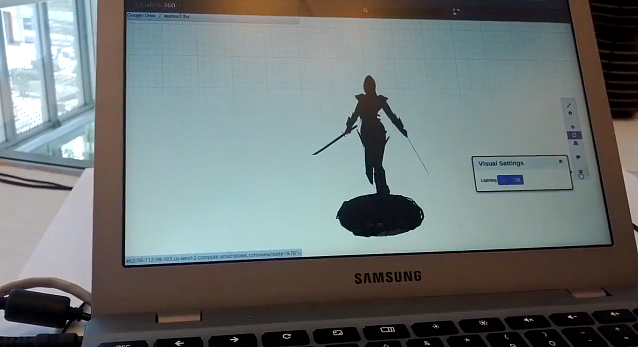
Autodesk cloud goes pretty much anywhere, even Chromebook
Perhaps my biggest surprise walking around Google I/O 2012: Autodesk, and a Chromebook! Cough, cough, gag, gag. What the hell is this? Why would Autodesk demo its big-iron 3D design products on the Samsung Series 5 550. This is not MacBook Pro with Retina Display.
As Randy Young explains it's all about the cloud and extending Autodesk customers' capabilities in the cloud. Let's say you're a builder. You've got AutoCAD and your client doesn't. They can view the design in Chrome. Sure enough, there's an AutoCAD WS plug-in available in the Chrome Webstore. Yes, apps for Android and iOS are available, too. But the developer is here promoting Autodesk 360 cloud service. The concept: Store and share design files in the cloud. If your customer is crazy enough to buy Chromebook. No problem.
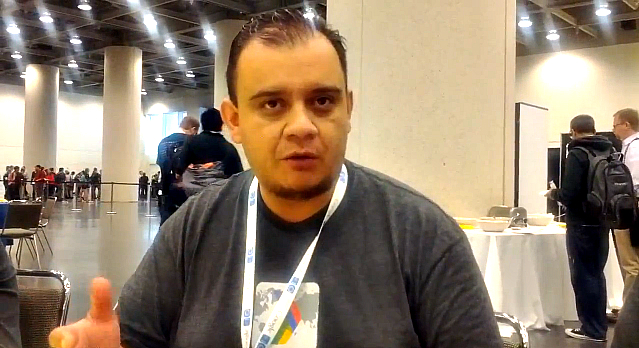
These developers love Android -- Chrome OS not as much
This morning, before Google I/O 2012 keynote kicked off, I spoke with three developers from Ice Development Solutions, all from Phoenix, Arizona. They expressed excitement about Android and imminent Nexus 7 tablet announcement.
They feel real good about Chrome, too, but not as much about Chromebook. Some of their work involves games, and they say the hardware Chrome OS currently runs on isn't good enough. Get this: Their games run better on Ubuntu on the same hardware. Damn, good thing I don't game on the Samsung Series 5 550 Chromebook.
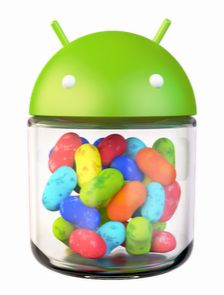
Android 4.1 Jelly Bean: a dozen or so of the biggest improvements
It appears that this round of mobile operating system updates will be incremental for all platforms involved.
Following Apple's announcement of iOS 6, and Microsoft's announcement of Windows Phone 8, Google on Wednesday outlined the upcoming features of Android 4.1 "Jelly Bean," and revealed the update will provide mostly under-the-hood changes that aren't geared toward "wowing" users.
